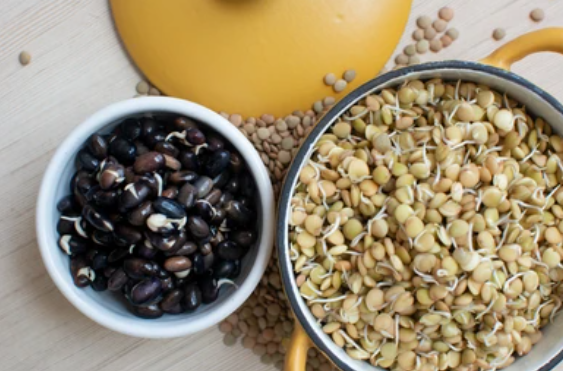Search online for ‘antinutrients’ and you might be
concerned. According to some sites, you should steer clear of foods you have
always thought were healthy.
Antinutrients are compounds in plants that help protect them
from threats like bacterial infection and insects. They are high in foods like
wholegrains, legumes and leafy greens – foods we are told to eat more of.
The problem with antinutrients is that they can bind with certain
minerals in our bodies – notably calcium, iron, potassium, magnesium and zinc –
making them less available.
Common antinutrients are:
- oxalates, found in leafy greens, tea, beans, nuts
- lectins, found in beans, peanuts and wholegrains
- phytates, from wholegrains, seeds, legumes and nuts, and,
- tannins, found in tea, coffee, legumes, berries, chocolate
and wine.
Antinutrients sound pretty scary – after all, we do not want
to be eating foods that may lead to a mineral deficiency. A quick online search
might alarm you even more. Many sites claim these ‘plant toxins’ are behind
inflammation, autoimmune disease, weight gain and kidney problems. Fortunately,
most of these claims are not backed by evidence.

Do we need to ban the beans?
According to Tuffs Health & Nutrition letter,
there is no evidence that antinutrients in commonly consumed foods lead to
mineral deficiencies. It says that a varied diet should give us plenty of
minerals, and the small percentage we cannot absorb because they are bound to
antinutrients should not be a problem.
If you eliminated or reduced the foods that contain
antinutrients you would lose vital sources of dietary fibre, vitamins including
A, C, E, B group, K and E, minerals healthy fats, phytochemicals, and antioxidants
like lutein and zeaxanthin. The health benefits of a diet rich in plant foods
far outweighs the minerals lost through antinutrients.
The benefits of antinutrients
Many antinutrients, rather than something to avoid, are now
even considered health-promoting, says Jill Joyce, Assistant Professor of
Public Health Nutrition at Oklahoma State University. Writing in the Conversation,
Professor Joyce says that the most frequently eaten antinutrients can support the
immune system, lower the risk of cancer, type 2 diabetes and cardiovascular
disease, inhibit the growth of bacteria and fungi, and may decrease cholesterol
levels and blood pressure.
This does not mean you should never give them a second
thought. If you are at risk of a disease related to mineral deficiencies, such
as osteoporosis with calcium deficiency or anaemia with iron deficiency, speak
to an Accredited Practising Dietitian for advice on how to monitor your food
choices for antinutrient content.
Can we reduce antinutrients?
Soaking, boiling or other high-heat processes remove many antinutrients,
and in some cases, such as certain lectins, it is essential that we destroy
them.
Boiling beans for at least 10 mins inactivates the lectins,
as does the canning process. Be warned that cooking in a slow cooker without
first boiling for 10 minutes will not destroy the lectins.